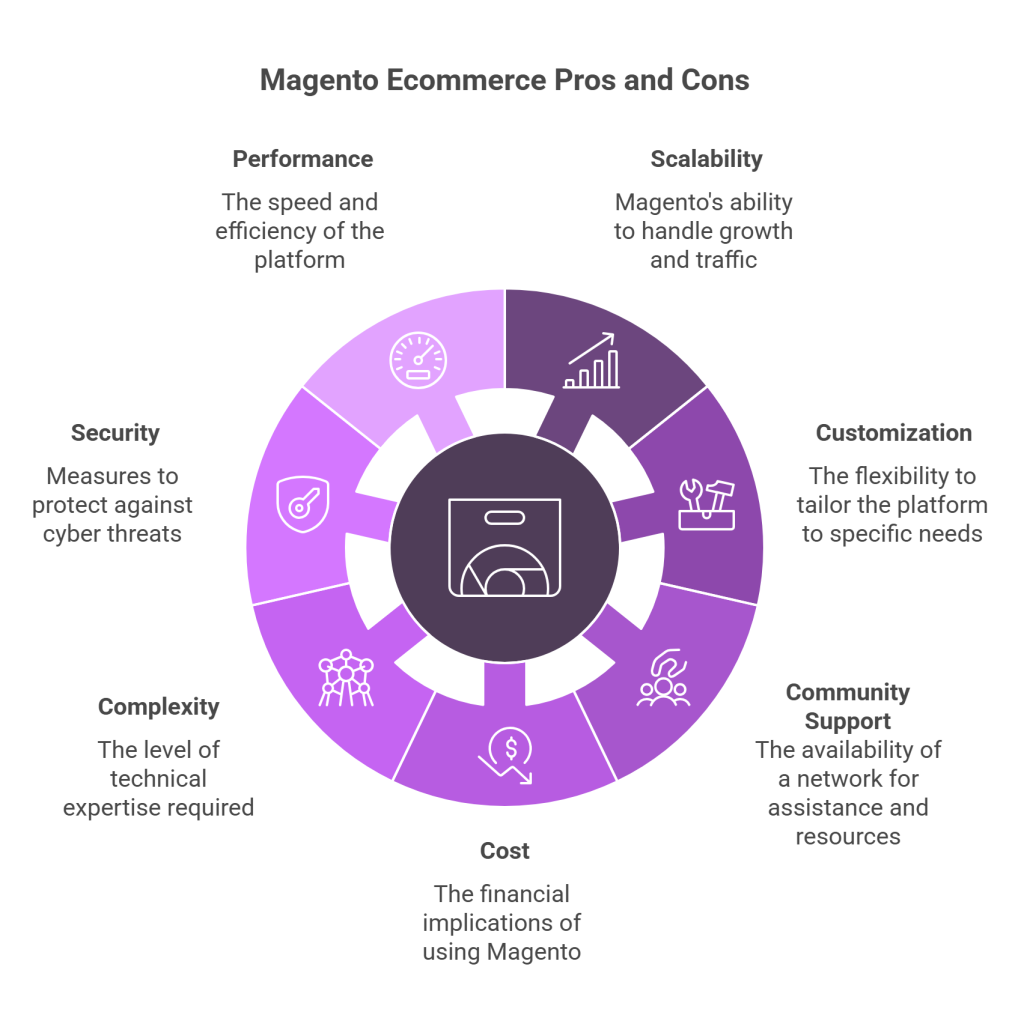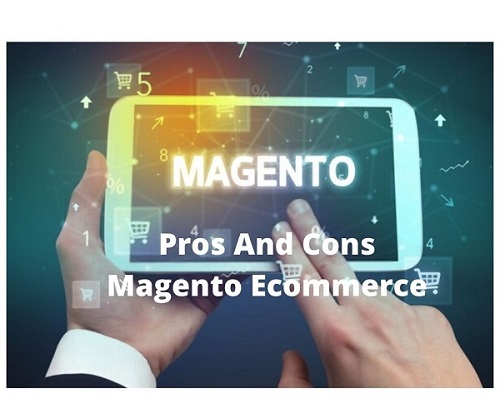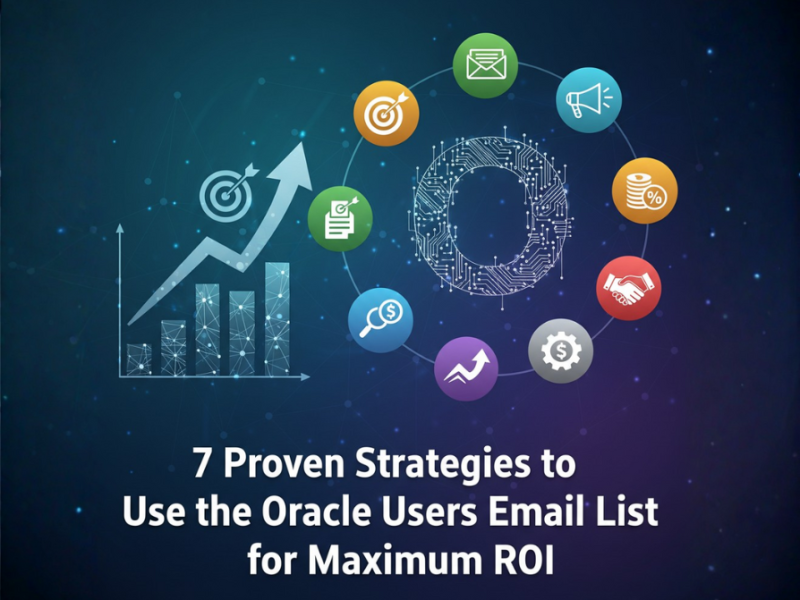In the vast and competitive world of e-commerce, choosing the right platform can feel like navigating a labyrinth. With countless options promising growth and success, how do you decide which one truly aligns with your business vision?
Amidst this complex landscape, Magento Ecommerce stands as a prominent and often-discussed player, renowned for its robust capabilities and extensive flexibility. However, its power comes with its own set of considerations.

This article will delve into the 7 key advantages and disadvantages of Magento Users Email List, providing a balanced perspective to help businesses make an informed decision about its suitability for their online store.
Understanding Magento: A Brief Overview
Magento, now part of Adobe Experience Cloud, is a powerful e-commerce platform that offers two primary versions: Magento Open Source (formerly Magento Community Edition) and Adobe Commerce (formerly Magento Enterprise Edition).
Magento Open Source is a free, highly flexible, and customizable solution, while Adobe Commerce is a paid, enterprise-level platform offering enhanced features, scalability, and dedicated support.
Globally, Magento maintains a significant market presence, powering over 239,000 websites as of 2024. While specific market share figures can fluctuate, it consistently holds a notable position, particularly strong in Europe.
The platform is especially popular with small to medium businesses and those with high aspirations for their online presence, demonstrating a strong adoption rate for Magento 2, the latest iteration. Ultimately, Magento is typically for businesses seeking high customization, robust scalability, and a rich array of features that can support complex e-commerce operations.
The Pros of Magento Ecommerce
Magento’s reputation for power and versatility isn’t unfounded. Here are seven key advantages that make it a compelling choice for many businesses:
Pro 1: Unparalleled Customization and Flexibility
One of Magento’s most significant strengths lies in its ability to be extensively customized. Its open-source nature means developers have unrestricted access to the core code, allowing them to tailor every aspect of the online store.
This goes beyond mere aesthetic changes; businesses can implement unique functionalities, custom integrations with third-party systems, and design bespoke user experiences that perfectly align with their brand and operational needs. For example, a business might require a highly specialized checkout flow to accommodate unique product configurations or intricate pricing rules, all of which are achievable with Magento’s flexible architecture.
Pro 2: Robust Scalability for Growing Businesses
Magento is built to scale, making it an ideal choice for businesses with ambitious growth plans. Whether you’re anticipating a surge in traffic, expanding your product catalog, or venturing into new markets, Magento can handle the increased load without compromising performance.
This platform is truly enterprise-grade, capable of managing vast numbers of products and processing a high volume of transactions. To illustrate its capability, Magento platforms collectively handle over $155 billion in transactions annually.
This inherent scalability means that from ambitious startups to large enterprises, Magento can grow seamlessly with the business, eliminating the need for costly and disruptive platform migrations as sales figures climb.
Pro 3: Extensive Feature Set (Out-of-the-Box and Extensions)
Magento boasts a comprehensive suite of features right out of the box. These include advanced catalog management, multi-store management capabilities for operating multiple storefronts from a single backend, multi-currency support for international sales, sophisticated pricing rules, and robust B2B functionalities.
Beyond its native offerings, the Magento Marketplace provides a vast ecosystem of extensions, allowing businesses to easily integrate with various Payment Gateways, ERP systems, CRM platforms, and marketing automation tools. This rich array of features ensures businesses have all the tools they need to manage complex e-commerce operations efficiently.
Pro 4: Powerful SEO Capabilities
For any online business, visibility in search engines is paramount. Magento is renowned for its powerful built-in SEO tools, designed to help stores rank higher and attract more organic traffic. These capabilities include customizable meta tags, SEO-friendly URLs, automatic sitemap generation, canonical tags to prevent duplicate content issues, and robust support for schema markup.
These features collectively contribute to better search engine rankings and improved visibility, directly impacting a store’s discoverability and sales.
Pro 5: Strong Community Support and Developer Ecosystem
Magento benefits from a vast and active global community of developers, estimated to be over 300,000 strong. This extensive ecosystem translates into a wealth of resources, including forums, tutorials, and readily available expertise.
For businesses, this means easier access to skilled developers for custom work, readily available solutions to common challenges, and a vibrant network for staying updated with the latest trends and best practices. The collective knowledge and collaboration within this community are invaluable for problem-solving and optimizing Magento stores.
Pro 6: Mobile-First Design and Responsiveness
In today’s mobile-dominated world, a responsive and fast-loading mobile experience is crucial. Magento places a strong emphasis on mobile-first design, with many themes inherently responsive, adapting seamlessly to various screen sizes.
Furthermore, Magento offers robust support for Progressive Web Apps (PWAs), which provide an app-like experience directly within the browser, leading to faster load times, improved engagement, and better conversion rates on mobile devices.
Pro 7: Advanced Security Features
Security is a paramount concern for any online business. Magento provides a strong foundation with built-in security features, including robust encryption, secure payment integrations, and regular security patches released by Adobe. By adhering to best practices and promptly applying these patches, businesses can significantly mitigate risks and maintain a secure environment for customer data and transactions.
The Cons of Magento Ecommerce
While Magento offers impressive capabilities, it’s equally important to understand its limitations and potential drawbacks.
Con 1: High Cost of Ownership
Despite Magento Open Source being free to download, the overall cost of ownership can be substantial. This is perhaps the most significant disadvantage of Magento Ecommerce.
- Licensing: While Magento Open Source is free, Adobe Commerce (the enterprise version) starts at approximately $22,000-$40,000+ per year, with prices escalating based on Gross Merchandise Value (GMV) and required features.
- Development: Implementing and customizing a Magento store often requires significant investment in skilled developers. Freelance developer rates can range from $15-$75 per hour, while agencies can charge considerably more. For a fully customized Magento Open Source store, total development costs can easily range from $12,000 to $57,000 or even higher, depending on complexity.
- Hosting: Magento is resource-intensive and demands robust hosting solutions. Shared hosting typically won’t suffice; businesses often need dedicated servers, cloud hosting, or managed Magento hosting, which are considerably more expensive than hosting for simpler platforms.
- Extensions & Themes: While free extensions and themes exist, premium options and custom theme development can add significantly to the budget.
- Maintenance & Updates: Ongoing costs for security patches, bug fixes, performance optimization, and regular maintenance can range from $50-$100 per hour for support, making long-term operational expenses a critical consideration.
Con 2: Steep Learning Curve and Complexity
Magento is not a platform for beginners or those without dedicated technical resources. Its vast feature set and flexible architecture contribute to a steep learning curve. Setting up, customizing, and managing a Magento store effectively requires a good understanding of web development, database management, and server administration.
Businesses without in-house technical expertise will need to budget for external development and support, adding to the overall cost and complexity.
Con 3: Resource-Intensive and Performance Demands
To deliver optimal performance, a Magento store requires powerful servers and careful optimization. Without proper configuration and ongoing fine-tuning, Magento stores can suffer from slow load times, impacting user experience and search engine rankings.
Metrics like Largest Contentful Paint (LCP), Interaction to Next Paint (INP), Cumulative Layout Shift (CLS), and Time to First Byte (TTFB) are critical, and meeting Google’s Core Web Vitals thresholds often requires expert intervention. A poorly optimized Magento store can quickly become a bottleneck for business growth.
Con 4: Potential for Security Vulnerabilities (if not managed properly)
While Magento provides strong built-in security features, its open-source nature means that if not properly managed, it can be susceptible to security vulnerabilities. Common risks include outdated Magento versions, unpatched third-party extensions, SQL injection attacks, and Cross-Site Scripting (XSS).
Businesses must prioritize continuous vigilance, regularly apply security patches (often released via Adobe Security Bulletins), and implement secure coding practices to protect customer data and maintain trust. Failing to do so can lead to costly data breaches and reputational damage.
Con 5: Time-Consuming Development and Implementation
Compared to more streamlined, hosted platforms, Magento projects typically have longer development and implementation cycles. The extensive customization options and inherent complexity mean that launching a fully functional, tailored Magento store requires meticulous planning, design, development, and rigorous testing. This extended timeline can be a drawback for businesses needing to go to market quickly.
Con 6: Challenges with Upgrades and Maintenance
Upgrading Magento versions, especially when moving between major releases (e.g., Magento 1 to Magento 2), can be a complex and time-consuming process. This is particularly true for stores with significant customizations, as these customizations may need to be re-engineered to be compatible with the new version. Regular maintenance, including applying patches and updates, also requires technical expertise and can incur ongoing costs.
Con 7: Competition from Simpler, Hosted Platforms
While Magento offers unparalleled power, it faces stiff competition from simpler, hosted platforms like Shopify and BigCommerce. These platforms offer an all-in-one, user-friendly solution that often appeals to smaller businesses or those prioritizing quick launches and ease of use over extreme customization.
Read more:
For example, Shopify currently holds a significantly larger global market share compared to Magento in some segments, indicating a preference for its simpler approach among certain business types. While less flexible, these alternatives often have lower entry barriers and reduced maintenance overhead.
Is Magento Right for Your Business? Key Considerations
Deciding if Magento Ecommerce is the right fit for your business requires a careful assessment of your specific needs, resources, and long-term objectives.
Assess Your Needs:
- Budget: Are you prepared for significant upfront and ongoing costs associated with development, hosting, extensions, and maintenance? Magento is an investment.
- Technical Expertise: Do you have an in-house technical team capable of managing a complex platform, or are you prepared to allocate a substantial budget for external skilled Magento developers and support?
- Scalability Requirements: Do you anticipate rapid growth, high transaction volumes, or complex B2B functionalities that require robust scalability and advanced features?
- Customization Needs: Do you require highly unique functionalities, integrations, or a bespoke design that off-the-shelf solutions cannot provide?
When Magento Shines:
Magento truly shines for:
- Large enterprises and established businesses with complex e-commerce needs.
- Businesses engaged in complex B2B operations requiring specialized functionalities.
- Companies with a need for unique product offerings or highly customized user experiences.
- Businesses that require deep integrations with existing ERP, CRM, or PIM systems.
- Companies with significant growth plans that necessitate a highly scalable and adaptable platform.
When Alternatives Might Be Better:
Conversely, if your business falls into these categories, alternatives might be more suitable:
- Small businesses with limited budgets and fewer complex requirements.
- Startups prioritizing a quick launch and ease of use over extensive customization.
- Businesses with simpler e-commerce needs that can be met by more straightforward, hosted platforms.
Final Thoughts
In summary, Magento Ecommerce stands as a powerful, flexible, and highly scalable platform capable of supporting some of the most demanding online stores. Its unparalleled customization options, robust feature set, and strong SEO capabilities make it an attractive choice for businesses aiming for significant growth and a unique online presence.
However, this power comes with a higher investment in terms of time, money, and technical resources due to its complexity, resource demands, and the necessity for ongoing maintenance and security vigilance.
Ultimately, the choice of e-commerce platform depends entirely on your business’s specific requirements, available resources, and long-term vision. Before making a decision, thoroughly evaluate your business’s current and future needs, budget, and technical capabilities.
To ensure you make the most informed choice for your unique situation, consult with experienced Magento development agencies to get a tailored assessment and explore if Magento’s powerful ecosystem is the right foundation for your e-commerce success.


